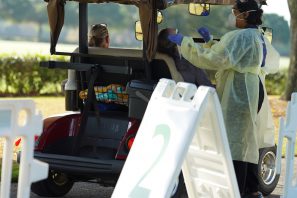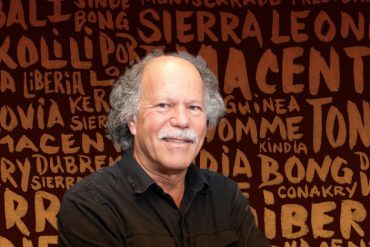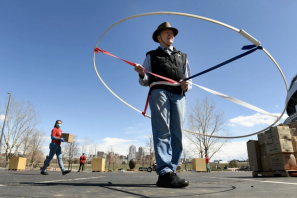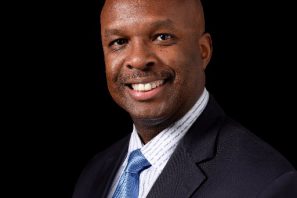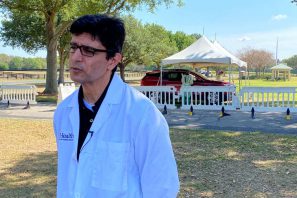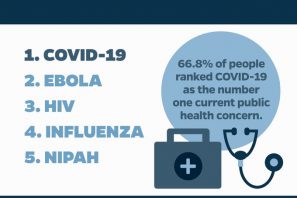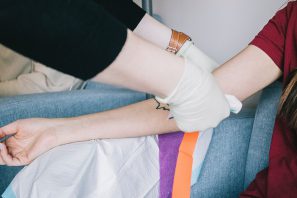A mathematical modeling group including investigators from the UF Center for Statistics and Quantitative Infections Diseases worked with the World Health Organization and Florida Department of Health on modeling the pandemic globally.
Longini's suggestion that US deaths could peak in less than a month will have two possible impacts.
“It’s probably going to just continue to rise exponentially for a couple of weeks,” said Ira Longini, co-director of the Center for Statistics and Quantitative Infectious Diseases at the Emerging Pathogens Institute of the University of Florida.
"We're trying to figure out who is ill or who has had significant exposure, and then keep them from getting around other folks," Haley said.
“By the time someone arrives at the hospital and is severely ill, you can assume they were infected two to three weeks ago,” said Natalie Dean, a biostatistician at the University of Florida.
"There’s a lot that we don’t know, but we’re trying to get that information and see if it can inform policy as we move ahead," Lauzardo said.
"The most important question we're trying to determine is how any people have the virus but are showing no symptoms at all," Dr. Michael Lauzardo, an infectious disease specialist at the University of Florida said.
80 percent of respondents indicated they would get a vaccine for COVID-19 if it were available
“You need to assume that you’re carrying the virus, and you need to assume everybody else is carrying the virus," Hudak said.
The current crisis highlights the critical need for the federal government to approve and begin manufacturing oxygen therapeutics, said Bruce Spiess.
UF experts discuss how to engage with older friends and family members during the coronavirus crisis while still adhering to social distancing recommendations.
The number of American travelers who said domestic air travel should be avoided increased from 32% to 43% in three weeks, according to a new survey.

